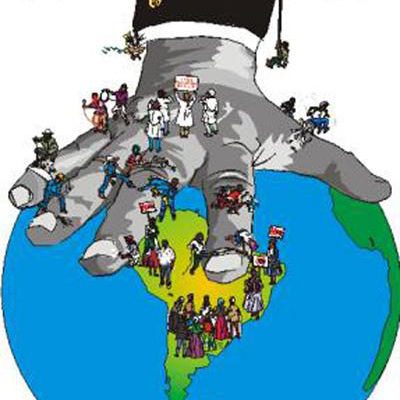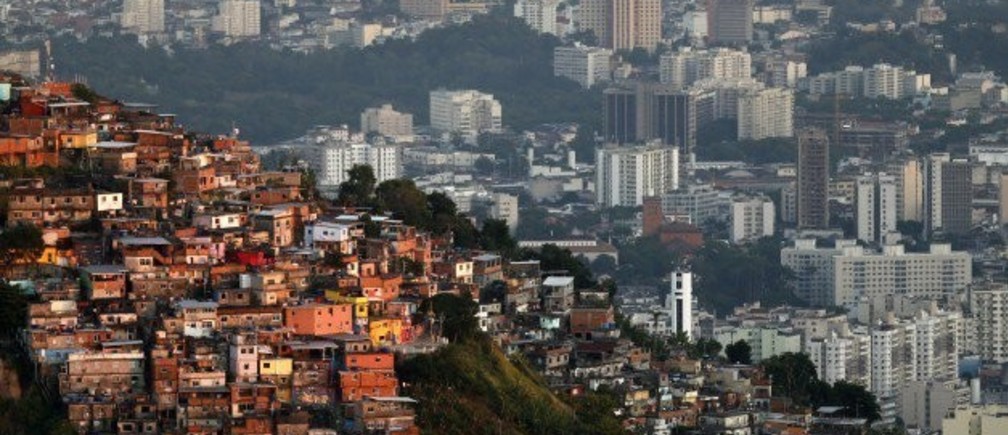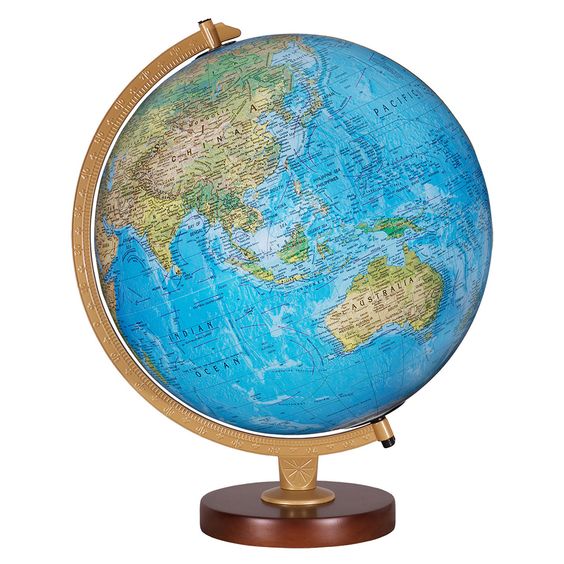
The problems stretch from Patagonia to Cartagena and further north into Central America and Mexico.
By Tom Arms
South America is in a mess. The problems stretch from Patagonia to Cartagena and further north into Central America and Mexico.
Almost everywhere there is violence, political instability and economic problems.
The main spotlight has been shone on Brazil. The Portuguese-speaking nation is the economic giant of South America. Its GDP is four times the next largest Latin economy and the eighth largest in the world. Brazil has tremendous potential and political problems.
It is deeply divided after left-winger Luiz Inacio da Silva (aka Lula) narrowly defeated right-wing populist Jair Bolsonaro in October elections.
Bolsonaro and his supporters has claimed the elections were rigged and demanded a re-run. Thousands of Bolsonaristas (as they are called) stormed government offices in the capital Brasilia including Congress, the Supreme Court and the presidential palace. 1,200 have been arrested.
But the real problem is not the validity of the elections but the deep divide between Brazil’s political left and right. Conservatives, which include the military, police, middle classes and growing Christian evangelical movement, view Lula as a crypto-communist set on destroying Brazilian democracy and taking their country down the path of Cuba or Venezuela. Bolsonaro’s opponents worry that he will return Brazil to a military dictatorship.

To the south, Argentina is suffering another bout of Peronism and a division at the top of the country’s political structure. President Alberto Fernandez and Vice-President Cristina Fernandez de Kirchner simply don’t speak to each other. On top of that, Ms. Kirchner has been convicted of fraud totaling $1 billion.
The resultant political vacuum and distractions at the top of the Argentine political tree, coupled with Peronism’s irresponsible spending has left the country with a crippling debt and 100 percent inflation rate. Thirty-seven percent of the country live below the poverty line.
Then there is Peru. In one week in 2020 Peru had three presidents in only five days. Exactly who is the current president is open for debate. Left-wing ex-school teacher President Pedro Castillo was arguing with his right-wing Congress. So he dissolved it and declared a state of emergency.
A raft of ministers resigned and Congress impeached President Castillo, threw him into jail and swore in Vice-President Dina Boularte as his replacement. From his jail cell, Castillo maintains he is the rightful president, as did the scores of rioters who died in the past month demanding Castillo’s release.
The war in the Ukraine has provided a reprieve of sorts for Venezuela’s beleaguered Nicholas Maduro. It has pushed up the price of the country’s only major export—oil, and forced Washington to improve relations. Inflation is dropping but is still at 156 percent a year. In 2021 it averaged 686.41 percent.
In neighboring Colombia, former guerrilla fighter Gustavo Petro faces challenges from the left and right. He switched from the armed struggle to peaceful politics when FARC signed a peace deal with the government in 2016. But other guerrilla groups have remained in the field under the banner of the National Liberation Army. The government has been holding talks with the rebels in Mexico, but so far the results are disappointing.
At the same time, President Petro has angered the Colombian right by increasing welfare spending and raising taxes for the wealthy. Recently there was an attempted assassination of Vice-President Francia Marquez, Colombia’s first Black woman vice-president. It is not clear whether the bomb was planted by extremists on the right or the left, but she rose to prominence as an environmental activist fighting illegal mining activities.
Forthcoming elections in Paraguay have a surprising international dimension. Paraguay is the only South American country to have full diplomatic relations with Taiwan. Its recognition of the island country has been a long-standing policy of the country’s dominant right-wing Colorado Party. But Paraguay’s beef and soya farmers want access to the Chinese market so opposition Liberal Party candidate Efrain Alegre has promised to break with Taipei and forge links with Beijing.
Both Taiwan and Mainland China are pouring money into the campaigns of the opposing parties and elections will be held on 30 October.
A bit further north in Central America there are endemic problems of civil war, gang warfare and drug-related political corruption in Panama, Nicaragua, El Salvador, Honduras, Guatemala and Mexico. The stand-out island of stability and prosperity is Costa Rica.
Political instability anywhere provides opportunities for exploitation by outside powers. In the case of South America, there is talk of Chinese naval facilities in Tierra del Fuego and Panama. Both Russia, Iran and China have close ties with Nicholas Maduro.
 World Review
World Review
The Kevin McCarthy election fiasco will have far-reaching consequences for Speaker McCarthy, Donald Trump, the Republican Party, the conduct of US government and the rest of the world. Let’s start with Mr. Trump. He endorsed Mr. McCarthy. The “Never Kevins” in the far-right Republican Freedom Caucus ignored him. The voters ignored his key endorsements in the mid-term elections. Trump’s star is still in the firmament, but on the wane.
Now for the Republican Party. The battle to secure McCarthy’s election exposed a split. A small group of 20 right-wing extremists were able to delay and nearly blocked the election of Kevin McCarthy against the wishes of 202 of their party colleagues. They have also wrung key concessions out of the Speaker. The Freedom Caucus have discovered power. They will use it.
What are these concessions and what impact will their implementation have? First of all, if any one member of Congress does not like something that Speaker McCarthy has done they can table a vote to remove him. At the very least, this has the potential to seriously disrupt and delay congressional business. . This means that McCarthy will be much more politically circumspect then he might have been otherwise.
Next, the Speaker has agreed to give more time to debate and amend legislation on the floor of the house. The Freedom Caucus are also known as “Disrupters” and they are particularly keen on disrupting or blocking any spending bills, especially those related to Ukraine and foreign aid. And if it means stopping the machinery of government, then, according to Freedom Caucus members, so be it.
The British NHS is not the only European health service with problems. The French are also wringing their medical hands. The problem? Not enough staff and—as in Britain—the looming threat of strikes. As the New Year dawned some Paris hospitals reported 90 percent of staff reported sick in protest at working conditions. The country’s second largest health union has called for an “unlimited walkout” of nurses followed by a strike by GPs.
President Emmanuel Macron is throwing money at the problem but so far it is not working. Forty percent of French nurses are planning to leave the profession this year despite an extra $10 billion wage package. Wannabe doctors are being offered a $50,000 golden handshake to enter the profession.
The French desperately needs them. Rural areas are especially short of medical staff, some communities have been without a doctor’s surgery for several years and the situation is only likely to worsen as about half of the French doctors are over 55 and fast approaching retirement age.
There is a stand-out villain in Prince Harry’s book “Spare”—the press, especially Britain’s tabloid newspapers. I, in common with most of the public, have some sympathy and understanding with Harry’s views especially as one of the worst elements of the tabloids—the paparazzi played a major part in his mother’s death.
But the Duke of Sussex and his supporters ignore some basic facts: Newspapers are businesses. They are also a crucial element in any democratic society. Furthermore, the more successful they are as a business the greater their degree of freedom, which in turn is good for democracy. To make money and be free they must give the public the news that they want to read. The public wants to read about scandal and rows, especially if they involve the world’s most famous Royal Family.
And, of course, the Royal Family, needs the press. If the media stop reporting their activities they become an irrelevancy. Prince Harry should realize all the above. His book is making a fortune on the back of royal tittle tattle which tabloid readers love. And his willingness to lift the royal veil has swung the media spotlight firmly in his direction.
Yevgeny Prigozhin, head of Russia’s notorious Wager Group won two major awards last year: The title of “Hero of the Russian Federation” and the “Corrupt Person of the Year Award.” The first was presented to him by his friend Vladimir Putin and the second by the Organized Crime and Corruption Reporting Project.
The shadowy private army which is the Wagner Group is playing an increasingly important role in the Ukraine War. Officially, there are no private armies in Russia. They are against the law. Unofficially, the Wagner Group has become Putin’s privately-controlled army beyond the reach of legal niceties and ministry of defence bureaucracy. As well as Ukraine, the Wagner Group operates in Syria, Libya and Mali. Wherever it goes, it leaves a trail of rape, murder and a raft of other war crimes.
This is not surprising given that its ranks are filled with convicts. Of the 50,000 Wagner mercenaries currently in Ukraine, 40,000 of them were in prison cells a few months ago. These hardened criminals are ruthless and they are achieving results. It appears that this week they have gained control of the Ukrainian town of Soledad. The town is the center of Ukraine’s salt mines which can provide protected ammunition dumps and 200 miles of tunnels to infiltrate soldiers behind Ukrainian lines. But more importantly, the capture of Soledad provides Putin with a much-needed PR boost. Yevgeny Prigozhin may be in line for an oak leaf cluster for his Russian hero medal.
____________________
 Tom Arms is foreign editor of Liberal Democrat Voice and the author of “America Made in Britain”.
Tom Arms is foreign editor of Liberal Democrat Voice and the author of “America Made in Britain”.